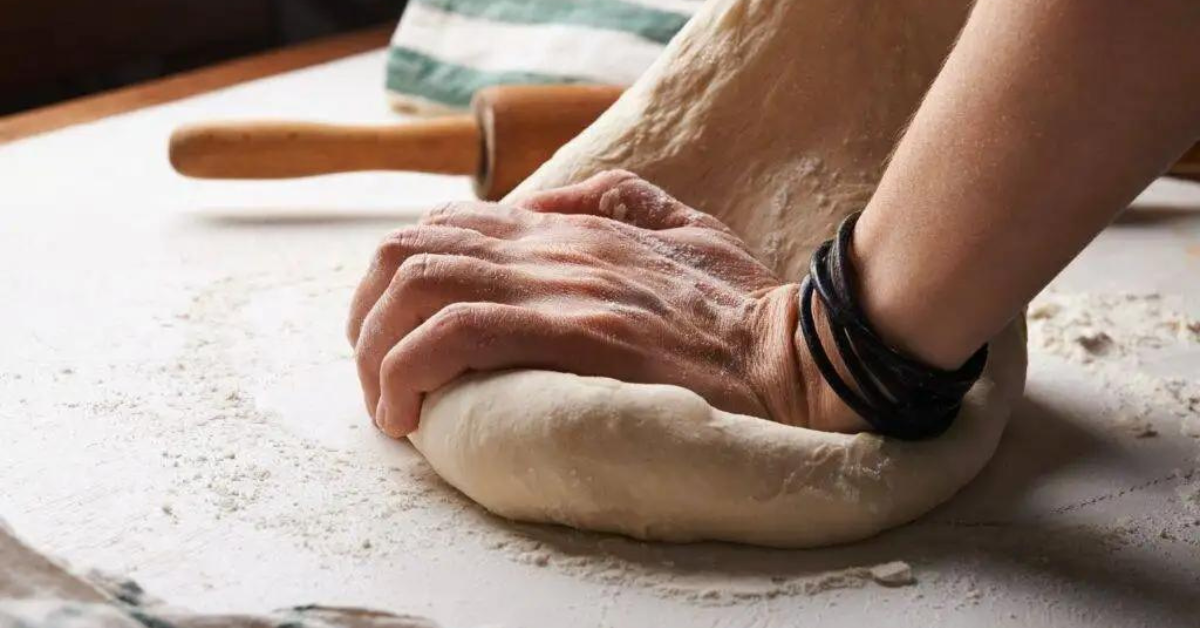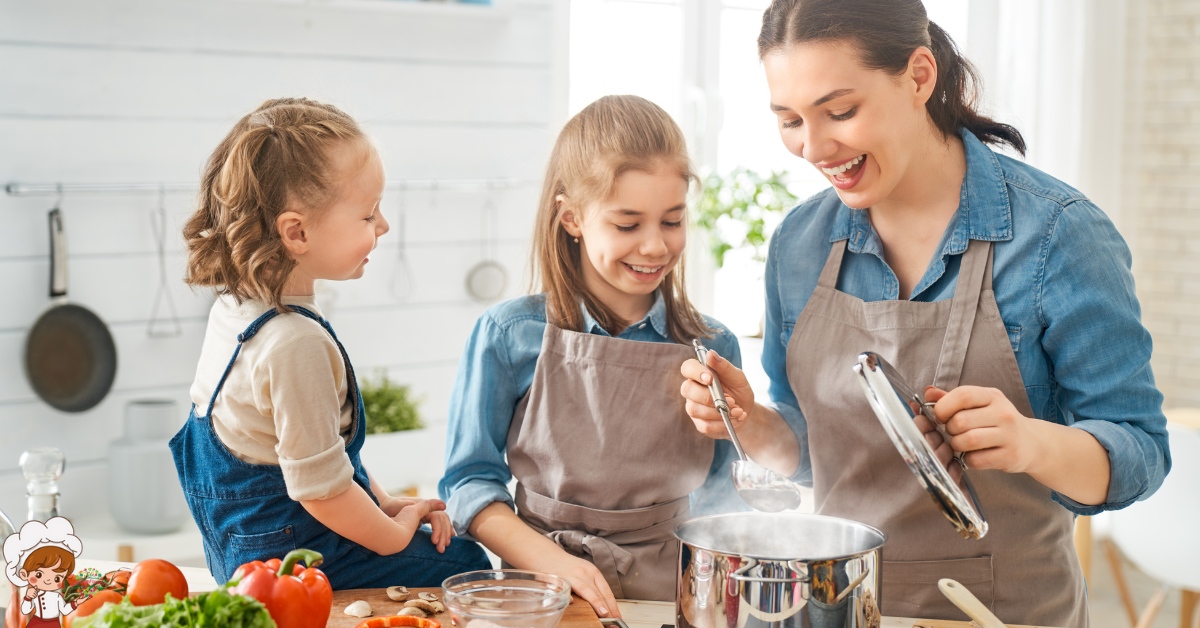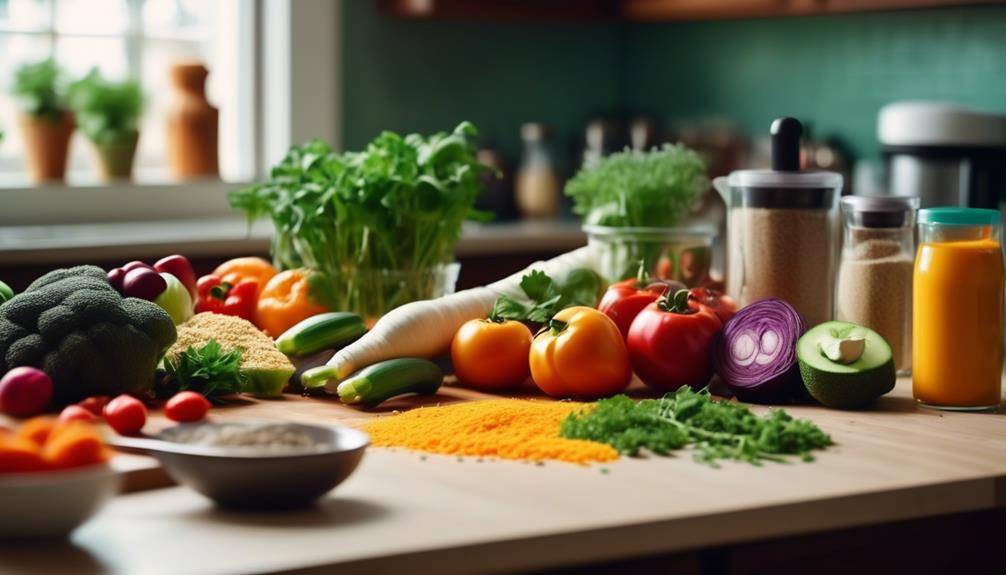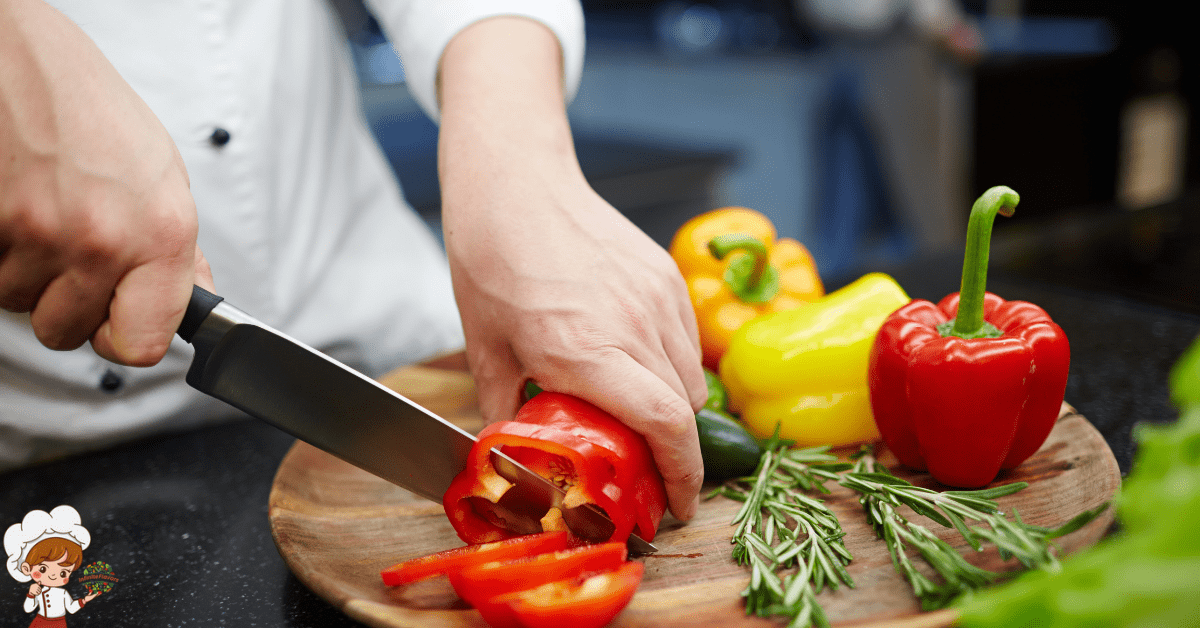How To: Why Start With Basic Cooking Skills
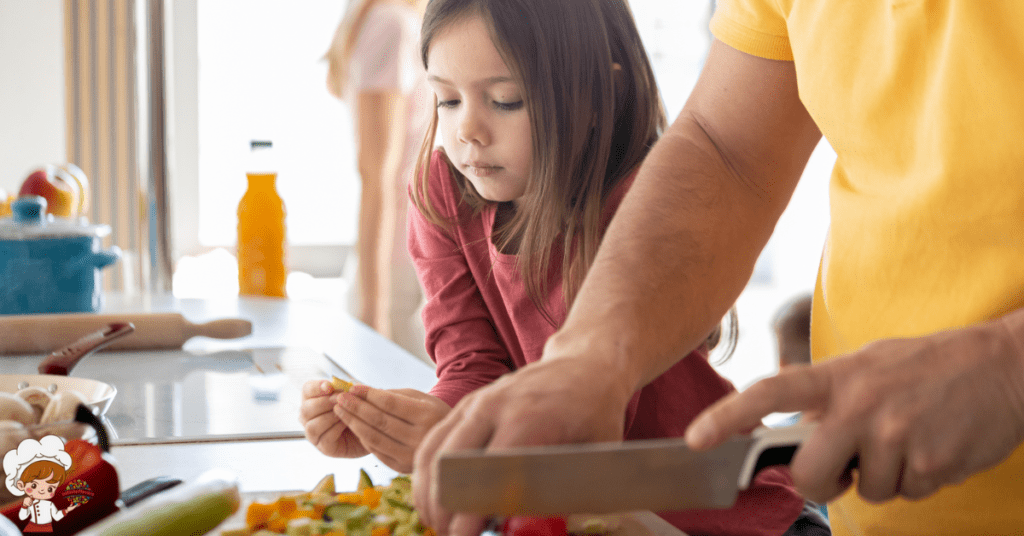
Why Start With Basic Cooking Skills; Are you hesitant to learn basic cooking skills because you think it’s too time-consuming or complicated? Think again! Starting with basic cooking skills is the foundation that will open up a world of culinary possibilities for you. By understanding the essentials, you’ll be able to create delicious homemade meals with ease.
From mastering simple techniques to exploring flavors and ingredients, cooking becomes an enjoyable and rewarding experience. Not only will you save money by cooking at home, but you’ll also have complete control over what goes into your meals, leading to healthier choices. So, put aside any doubts and get ready to embark on a culinary journey that will not only impress your loved ones but also bring joy and satisfaction to your everyday life.
Building a Strong Culinary Foundation
To build a strong culinary foundation, you should start by mastering basic cooking skills. Culinary education is all about learning the fundamental skills that will serve as the building blocks of your culinary journey. These skills are the backbone of any successful chef or cook. Whether you aspire to work in a professional kitchen or simply want to impress your friends and family with your culinary creations, having a solid understanding of the basics is essential.
When it comes to culinary education, there are certain fundamental skills that you must acquire. These skills include knife techniques, such as how to properly slice, dice, and julienne ingredients. Knowing how to handle a knife with precision and control is crucial in the kitchen. Additionally, learning how to properly measure ingredients and follow recipes accurately is essential for creating delicious and consistent dishes.
Understanding the importance of heat control is another fundamental skill in culinary education. Knowing how to adjust the heat on a stovetop, grill, or oven can make all the difference in the final outcome of your dish. From searing a steak to baking a cake, being able to control and manipulate heat is crucial in achieving the desired results.
Furthermore, mastering basic cooking techniques, such as sautéing, roasting, and braising, will allow you to create a wide range of dishes. These techniques form the foundation of countless recipes and enable you to explore and experiment with different flavors and ingredients.
Understanding Ingredients and Flavors
Mastering basic cooking skills is essential for understanding ingredients and flavors. Once you have a solid foundation in the kitchen, you can begin to delve deeper into the art of cooking by exploring ingredient pairings and experimenting with different flavors.
Understanding ingredient pairings is crucial for creating well-balanced and flavorful dishes. Certain ingredients naturally complement each other, while others may clash and create an unpleasant taste. By familiarizing yourself with which ingredients work well together, you can enhance the flavors of your dishes and create harmonious combinations. For example, the tanginess of lemon can enhance the flavor of seafood, while the creaminess of avocado can balance out the spiciness of chili peppers.
Experimenting with different flavors is also a key aspect of understanding ingredients. By trying out new spices, herbs, and seasonings, you can discover unique flavor profiles and add depth to your cooking. Don’t be afraid to step out of your comfort zone and try combinations you wouldn’t normally think of. You might be surprised by the delicious results!
Additionally, understanding flavors goes beyond just knowing which ingredients pair well together. It also involves understanding the different tastes, textures, and aromas that ingredients can contribute to a dish. For example, a sprinkle of fresh herbs can add a vibrant and aromatic element, while a dash of soy sauce can bring a savory umami flavor.
Mastering Essential Cooking Techniques
First, learn five essential cooking techniques to elevate your culinary skills. Improving knife skills is crucial in the kitchen. A sharp knife and proper cutting technique can make a world of difference in the outcome of your dishes. Take the time to practice different cuts, such as dicing, mincing, and julienning, to ensure even and consistent cooking.
Understanding cooking methods is another essential aspect of mastering cooking techniques. Each method, whether it’s baking, roasting, sautéing, simmering, or grilling, has its own purpose and effect on the ingredients. By understanding these methods, you can choose the best one to achieve the desired result. For example, grilling imparts a smoky flavor and creates a crispy crust, while simmering allows flavors to meld together over a longer period.
Next, explore the world of braising and stewing. These techniques involve cooking food slowly in liquid, resulting in tender and flavorful dishes. Braising is often used for large cuts of meat, while stewing is ideal for smaller pieces and vegetables.
Searing is another technique that can elevate your cooking. By quickly cooking food over high heat, you can develop a beautiful crust and seal in the juices. This technique is commonly used for steaks, scallops, and other proteins.
Lastly, don’t forget about the importance of seasoning. Properly seasoning your dishes can transform them from average to extraordinary. Experiment with different herbs, spices, and flavorings to enhance the taste of your meals.
Developing Creativity and Versatility
Now that you have mastered essential cooking techniques, it’s time to take your culinary skills to the next level. Developing creativity and versatility in the kitchen is essential for becoming a truly skilled cook. By enhancing your culinary inventiveness, you’ll be able to create unique and exciting dishes that showcase your personal style. Additionally, expanding your culinary adaptability will allow you to confidently tackle any recipe or ingredient, making you a versatile chef who can adapt to any culinary challenge. So, let’s explore how developing creativity and versatility can elevate your cooking abilities.
Enhancing Culinary Inventiveness
Developing culinary inventiveness involves exploring new flavors and techniques to expand your cooking repertoire. One way to enhance your culinary creativity is by actively seeking out and exploring new recipes. Don’t be afraid to step out of your comfort zone and try dishes that incorporate ingredients or cooking methods you are unfamiliar with. This will not only challenge your skills but also open up a whole new world of flavors and possibilities.
Additionally, experimenting with flavors is key to developing your culinary inventiveness. Don’t be afraid to mix and match different ingredients, spices, and seasonings to create unique and unexpected flavor combinations. This will help you develop your own signature style and make your dishes stand out. So, don’t be afraid to get creative in the kitchen and let your culinary inventiveness shine!
Expanding Culinary Adaptability
Enhance your culinary adaptability by embracing creativity and versatility in the kitchen. By expanding your repertoire of cooking techniques and ingredients, you can improve efficiency and enhance taste in your culinary creations. Developing creativity allows you to think outside the box, experimenting with new flavor combinations and unique presentations. Versatility enables you to adapt to different dietary preferences and restrictions, ensuring that everyone at the table can enjoy your dishes.
When you become more adaptable in the kitchen, you can easily modify recipes to suit your needs, making substitutions and adjustments as necessary. This flexibility not only allows you to cater to individual preferences but also encourages you to explore new culinary horizons. So, don’t be afraid to get creative and try new things – the possibilities in the kitchen are limitless!
Saving Money and Eating Healthier
By developing basic cooking skills, you can save money and eat healthier with your own homemade meals. Cooking at home allows you to have control over the ingredients you use, enabling you to make nutritious choices that fit your dietary needs. Here are four ways in which basic cooking skills can help you save money and eat healthier:
- Budget-Friendly Recipes: When you cook at home, you have the opportunity to create meals that are not only delicious but also cost-effective. By buying ingredients in bulk, utilizing leftovers, and planning your meals in advance, you can significantly reduce your grocery expenses. Look for budget-friendly recipes online or in cookbooks, and experiment with different flavors and ingredients to keep things interesting.
- Meal Planning: Planning your meals in advance is a great way to save money and eat healthier. By setting aside some time each week to plan your meals, you can create a grocery list that includes all the necessary ingredients. This will help you avoid impulse purchases and prevent food waste. Additionally, meal planning allows you to make healthier choices by ensuring that you have balanced and nutritious meals throughout the week.
- Portion Control: When you cook at home, you have control over how much food you prepare and consume. This helps you avoid overeating and enables you to practice portion control, which is essential for maintaining a healthy weight. By cooking your meals, you can also avoid the large portion sizes often served at restaurants, which can lead to excessive calorie intake.
- Reduced Consumption of Processed Foods: Cooking at home allows you to avoid processed foods that are often high in unhealthy fats, sugars, and additives. By using fresh ingredients and cooking from scratch, you can ensure that your meals are wholesome and free from unnecessary additives. This not only promotes better health but also saves you money in the long run.
Gaining Confidence in the Kitchen
To gain confidence in the kitchen, you can start by practicing basic cooking skills and gradually expanding your culinary repertoire. Gaining confidence is essential because it allows you to feel comfortable and in control when preparing meals. It gives you the assurance to explore new recipes, experiment with flavors, and ultimately become a more skilled cook.
When you first begin your culinary journey, it’s important to focus on mastering the basics. Start by learning simple techniques like chopping vegetables, sautéing onions, or boiling pasta. These fundamental skills form the foundation of many recipes and will give you the confidence to tackle more complex dishes later on. As you practice these skills, you’ll begin to understand how different ingredients work together and how to adjust flavors to suit your taste.
Expanding your kitchen skills doesn’t have to be overwhelming. Start by trying one new recipe each week and gradually build up your repertoire. You can explore different cuisines, experiment with herbs and spices, and even try your hand at baking. As you gain confidence, you’ll find yourself enjoying the process of cooking more and more.
Creating Memorable Dining Experiences
When it comes to creating memorable dining experiences, there are a few key points to keep in mind. First, presentation and ambiance play a crucial role in setting the tone for the meal. Whether it’s a beautifully arranged plate or a thoughtfully decorated dining space, these elements can elevate the experience. Second, culinary creativity is essential in crafting unique and delicious dishes that leave a lasting impression. Finally, adding a personal touch, such as incorporating family recipes or hosting themed dinners, can make the dining experience truly unforgettable.
Presentation and Ambiance
To enhance your dining experience and create lasting memories, it is important to focus on presentation and ambiance. These elements can greatly enhance the enjoyment of a meal, making it not only a feast for the taste buds but also a feast for the eyes and the soul. Here are four presentation techniques and ambiance-creating ideas that can take your dining experience to the next level:
- Plating: The way a dish is presented on a plate can greatly impact how appetizing it looks. Use artistic techniques like stacking, drizzling sauces, and garnishing to create visually stunning plates.
- Table Setting: Pay attention to the details when setting the table. Use quality tableware, elegant napkins, and beautiful centerpieces to create an inviting and sophisticated atmosphere.
- Lighting: The right lighting can set the mood for a memorable dining experience. Consider using warm, dim lighting for a cozy and intimate ambiance, or bright lighting for a lively and vibrant atmosphere.
- Music: Choose background music that complements the theme of your meal. Soft jazz or classical music can create a relaxed and elegant ambiance, while upbeat tunes can add energy and excitement.
Culinary Creativity
Enhancing your dining experiences involves showcasing your culinary creativity. One way to do this is by exploring new recipes and experimenting with flavors. By stepping out of your comfort zone and trying different ingredients and cooking techniques, you can create memorable dining experiences that will leave a lasting impression on your guests. Don’t be afraid to mix unexpected flavors or combine different cuisines to create unique and delicious dishes. You can also play with presentation, using artistic plating techniques to make your meals visually appealing. Culinary creativity is all about pushing boundaries and thinking outside the box. So next time you’re in the kitchen, let your imagination run wild and see what amazing dishes you can create.
Personal Touch
To create memorable dining experiences, add a personal touch by infusing your dishes with a unique blend of flavors and presentation techniques. By doing so, you can forge a personal connection with your guests, leaving a lasting impression on their taste buds and memories. Here are some ways to incorporate your personal touch into your culinary exploration:
- Experiment with different flavor combinations: Don’t be afraid to mix unexpected ingredients to create a dish that is uniquely yours. This will surprise and delight your guests, making the dining experience truly memorable.
- Pay attention to presentation: Take the time to beautifully plate your dishes. The visual appeal of a well-presented meal adds an extra layer of enjoyment and elevates the overall dining experience.
- Incorporate cultural influences: Draw inspiration from your heritage or travel experiences to infuse your dishes with cultural flavors and techniques. This adds depth and authenticity to your creations, giving your guests a taste of something truly special.
- Share the story behind your dishes: When serving your creations, take a moment to explain the inspiration and thought process behind the dish. This personal touch creates a connection between you and your guests, allowing them to appreciate the meal on a deeper level.
Exploring Cultural Cuisines
- Discover a world of flavors by immersing yourself in the diverse culinary traditions of different cultures. Exploring new recipes and learning about food history can be an exciting and enriching experience. As you delve into the depths of cultural cuisines, you will find yourself transported to far-off lands, tantalizing your taste buds with unique and exotic flavors.
Each culture has its own distinct culinary heritage, shaped by history, geography, and traditions. From the spicy curries of India to the delicate sushi of Japan, there is an endless array of dishes waiting to be explored. By trying out recipes from different cultures, you not only expand your culinary repertoire but also gain a deeper understanding of the people and their way of life.
Learning about food history is an integral part of exploring cultural cuisines. It allows you to appreciate the significance of certain ingredients, cooking techniques, and flavor combinations. For example, understanding the historical context behind the use of spices in Indian cuisine can enhance your appreciation for the complexity and depth of flavors in dishes like biryani or tikka masala.
Additionally, exploring cultural cuisines can be a gateway to learning about different customs, traditions, and values. Food is often a reflection of a society’s cultural identity, and by immersing yourself in different culinary traditions, you gain insights into the beliefs and practices of a particular culture.
Impressing Friends and Family With Homemade Meals
Impress your friends and family with your homemade meals by mastering basic cooking skills. Not only will you be able to create delicious dishes from scratch, but you will also gain confidence in the kitchen and become a more efficient cook. Here are four ways in which improving your time management and experimenting with new recipes can help you leave a lasting impression on your loved ones:
- Efficiency: By honing your basic cooking skills, you will become faster at meal preparation. Chopping vegetables, boiling pasta, and sautéing ingredients will become second nature to you, allowing you to whip up meals in no time. Your friends and family will be amazed at how quickly you can put a delicious meal on the table.
- Creativity: As you become more comfortable with the basics, you can start experimenting with new recipes. Try adding different herbs and spices to your dishes or incorporating unique ingredients. Your loved ones will appreciate your creativity and enjoy trying new flavors.
- Presentation: Mastering basic cooking skills will also help you improve your plating techniques. By arranging your dishes in an appealing way, you can make even the simplest meal look impressive. Your friends and family will be delighted by the visual appeal of your homemade creations.
- Variety: With basic cooking skills under your belt, you will have the confidence to try out different recipes and cuisines. Whether it’s Italian pasta, Mexican tacos, or Indian curry, your loved ones will be thrilled to taste a variety of homemade meals. They will be impressed by your ability to recreate their favorite dishes.
Frequently Asked Questions: Why Start With Basic Cooking Skills
What Are Some Specific Basic Cooking Skills That Beginners Should Start With?
Start with basic cooking skills like knife skills and measuring ingredients. These skills are essential for any beginner. They will help you navigate the kitchen confidently and ensure that your recipes turn out delicious every time.
How Can Understanding Ingredients and Flavors Enhance a Person’s Cooking Skills?
Understanding ingredients and flavors can enhance your cooking skills by giving you the knowledge to create more complex and delicious dishes. By knowing how different ingredients work together, you can experiment and elevate your culinary creations.
Are There Any Essential Cooking Techniques That Beginners Should Focus on Mastering?
Mastering essential cooking techniques is crucial for beginners. Knife skills are especially important, as they form the foundation for many recipes. With practice, you’ll gain confidence and efficiency in the kitchen, creating delicious meals with ease.
How Can Developing Creativity and Versatility in Cooking Benefit a Person’s Culinary Journey?
Developing creativity and versatility in cooking allows you to experiment with flavors, techniques, and ingredients. It opens up a world of possibilities, helping you create unique and exciting dishes that reflect your personal style and taste.
Can You Provide Some Tips on How to Save Money and Eat Healthier While Cooking at Home?
To save money and eat healthier while cooking at home, start with basic cooking skills. Learn to meal plan, use affordable ingredients, and cook from scratch. You’ll have control over your ingredients, portion sizes, and budget. Plus, it’s a fun and rewarding way to take care of yourself.
Conclusion
In conclusion, starting with basic cooking skills is essential for building a strong culinary foundation. By understanding ingredients and flavors, mastering essential cooking techniques, and developing creativity and versatility, you can save money, eat healthier, and gain confidence in the kitchen. Additionally, you can impress friends and family with homemade meals and create memorable dining experiences. Exploring cultural cuisines adds a touch of excitement and diversity to your cooking repertoire. So why wait? Start your culinary journey today and unlock a world of delicious possibilities.





